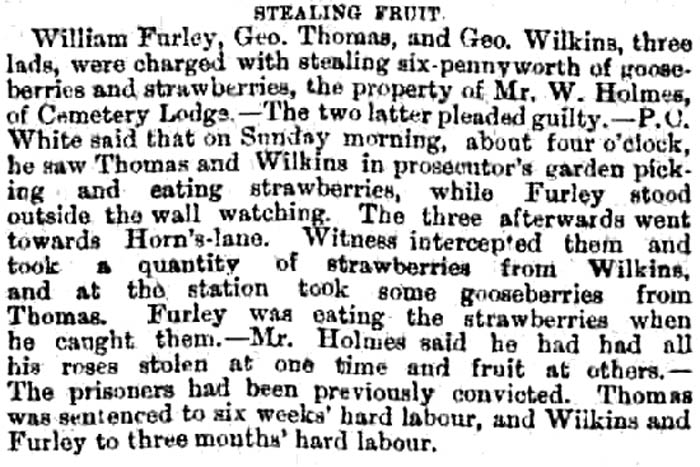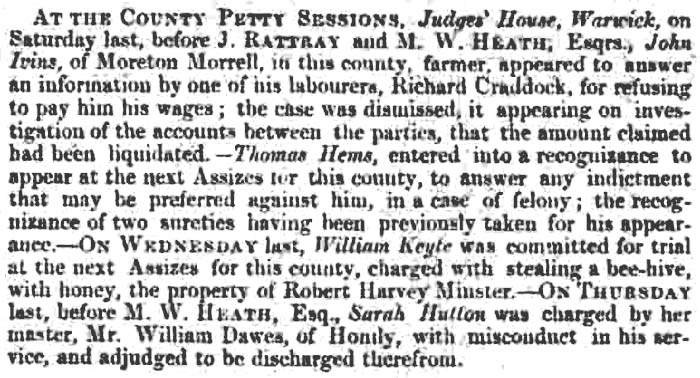Discover, verify, and explore authentic British newspaper stories from 1750 to 1950—completely free of charge. Whether you’re searching for unique details or significant historical events, I’m here to help uncover the stories that shaped your ancestors’ lives.
Discover Your UK Family History: Newspaper Stories from 1750 to 1950
Discover, verify, and explore authentic British newspaper stories from 1750 to 1950—completely free of charge. Whether you’re searching for unique details or significant historical events, I’m here to help uncover the stories that shaped your ancestors’ lives.
How It Works: News Article Searches
I carefully search through historical news articles to find mentions of your ancestors. Whether they were involved in a crime, witnessed an event, or were recognized for their achievements, I aim to uncover their stories as they were reported.
Free PDF Delivery
Once I find relevant articles, I’ll compile them into a PDF and send it directly to your inbox, free of charge. My goal is to provide easy access to valuable historical resources for your research.
Clear Communication

If I can’t find any information about your ancestors, I’ll let you know straight away. I believe in keeping you informed throughout the research process.
Discover Your Ancestors’ Stories: Good or Bad, We’ve Got You Covered. Whether your ancestors’ stories are filled with successes or challenges, my mission is to present you with the documented truths from historical archives. Let me help you uncover the rich history of your family and Britain.
The Form
This service and the supply of any relevant articles is completely free to use (no costs, fees, or registrations):
British Criminal System (17th to 19th Century)

Death Sentences: The 17th century saw a strict approach to justice, with a wide range of crimes punishable by death, including murder, treason, and theft.
Executions were public, serving as a deterrent. The 18th century maintained high numbers of capital punishments, but reform discussions emerged.
By the 19th century, the legal system shifted, reserving the death penalty for serious crimes like murder and high treason.
Transportation Sentences: Transportation was rare in the 17th century, with more common punishment being death or imprisonment. By the 18th century, criminals were increasingly sent to colonies, and the 19th century marked the height of transportation to Australia, where convicts served terms for various offenses.
British Criminal System (20th Century)
Death Sentences: The early 20th century retained the death penalty for severe crimes. However, reform discussions grew, reflecting changing attitudes toward punishment.
Imprisonment Sentences: Imprisonment became the primary punishment, with the prison system focusing more on rehabilitation and deterrence than punishment alone.
About Me

I am passionate about British history. I enjoy discovering and sharing historical insights, from village garden competitions to major life events. I’m committed to unearthing every fact, no matter how small, to reveal a complete picture of the past. Learn more about my journey here.
Why Old Newspapers?
- Life events data, such as birth, marriage, and death notices, are essential for family history.
- Local news can provide deep insights into relationships and residences of family members.
- Legal notices, bankruptcies, and land sales offer clues about financial status changes.
What You Can Expect to Find in Newspapers
- Crime reports
- Obituaries
- Birth, marriage, death, and funeral notices
- Social news
- Local events and coverage
- Advertisements and business notices
Searching My Database
Use this Google form to search across my online network (Old British News and Murder Research):
